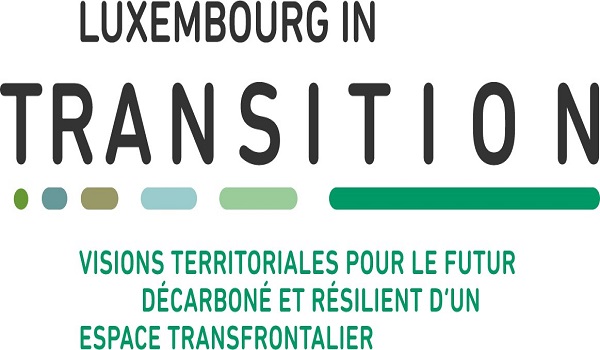
The Department of Spatial Planning of Luxembourg's Ministry of Energy and Spatial Planning has announced the selection of four multidisciplinary international teams for the third and final stage of an international consultation which aims to imagine the country's zero-carbon territory in 2050.
In June 2020, the Department of Spatial Planning launched an urban-architectural and landscape consultation which aims to bring together strategic spatial planning proposals for the Grand Duchy and cross-border regions facing the challenge of climate change and loss of biodiversity. Four teams were selected at the end of the second stage to continue the final work until November 2021.
By 2050, the aim is, on the one hand, to develop territorial scenarios of ecological / zero-carbon transition for the country and cross-border regions and, on the other hand, to better define the size of the territory on which to act and which is larger than the national territory.
Luxembourg in Transition - the first two stages of the consultation
Bringing together professionals, universities, technical colleges and research organisations with expertise in the fields of land use planning, town planning, landscape and architecture, supported by environmental disciplines as well as the human and social sciences, the four international teams made up of multidisciplinary experts have been working since October 2020 on operational proposals for ecological transition strategies:
- 1st stage (October 2020-January 2021) - the methodological framework of the transition project
30 teams responded to the call in June 2020 and, following an evaluation process, ten were selected to start the first stage of the process. They had to demonstrate and use with precision a metric of the transition, including data and quantitative objectives aimed at achieving two simultaneous goals: a society that is carbon-free as well as resilient to the effects of climate change.
- 2nd stage (January 2021-June 2021) - the transition project adapted to the cross-border functional region
The six teams selected at the end of the first stage had to demonstrate how their principles, methods, tools and metric(s) for the project's ecological transition can be used to develop a territorial project strategy in the case of the perimeter of Luxembourg cross-border reflection which corresponds to a living area.
At the end of these two stages, the bodies accompanying the consultation (scientific, advisory and interministerial committees) assessed the files submitted by the teams presenting their scientific approach and methodological framework for the transition project. All of the files submitted since the start of the consultation can be viewed on the website www.luxembourgintransition.lu.
The closing session of the second stage of the Luxembourg in Transition project was held in hybrid format at the Maison du Savoir at the University of Luxembourg in Esch-Belval on 3 and 4 June 2021, in the presence of Luxembourg's Minister for Spatial Planning, Claude Turmes, and the committees accompanying the consultation, as well as the Biergerkommitee 2050 (citizens' committee).
On the first day, a total of 170 people attended the oral presentation of the six teams selected for the second stage.
“The content and quality of the six reports submitted by the teams are fascinating. These were six highly engaging readings that provide innovative leads, innovative ideas, daring concepts", stated Minister Claude Turmes.
Following the internal deliberations during the closing day, the quality of the four final-stage teams' work was deemed exceptional by the members of the committees.
Minister Claude Turmes noted that “the choice was not easy to make: the evaluations submitted by the members of the expert committees in the fields covered and by the knowledgeable scientific members, according to a rigorously academic approach, did not make it possible to choose, from a holistic point of view, two teams. This is why it was decided to retain four teams for the last stage".
The following four teams were selected for the last stage of the consultation (in alphabetical order):
- "Tracer la voie d'un futur décarboné, résilient et désirable pour le Luxembourg" (charting the path for a carbon-free, resilient and desirable future for Luxembourg), featuring AREP Ville SAS (France), Sorbonne University (France), TAKTYK SARL (France), Mobil'homme SARL (Switzerland) and QUATTROLIBRI EURL (France);
- "The Luxembourg region as the most liveable, responsible and sustainable in Europe", featuring MVRDV B.V. (Netherlands), Goudappel Coffeng (Netherlands), Transsolar Inc. (USA), H+N+S B.V. (Netherlands), Deltares (Netherlands), DRIFT B.V. (Netherlands) and University of Twente, ITC Faculty (Netherlands);
"Luxembourg 2050 – Prospects for a Regenerative City-Landscape", featuring the University of Luxembourg, the Luxembourg Institute of Science and Technology (LIST),
CELL - Centre for Ecological Learning Luxembourg, IBLA - Institut fir Biologësch Landwirtschaft an Agrarkultur ASBL (Luxembourg) and OLM - Office for Landscape Morphology Co. Ltd. (France);
"Caring for soil: Reimagining a territory while empowering the collective", featuring 2001 SARL (Luxembourg), 51N4E bvba (Belgium), LOLA (Netherlands), Sytematica (Italy), Transsolar SAS (France), Endevour (Belgium), ETH Zürich (Suitzerland), TU Kaiserslautern (Germany), Yellow Ball (Luxembourg), Waltersdorfer Gregor (Luxembourg), Maxime Delvaux (Belgium) and Office for Cities (France).
- 3rd stage (June-November 2021) - the phased transition project broken down into demonstration projects
The selected teams must develop transition scenarios by 2050 for Luxembourg and its cross-border functional region by translating them into concrete applications and projects and at various scales.
The results of the consultation have a dual vocation, in the medium and long term: to guide public policies in terms of land use planning by 2050, particularly in the context of the current work on the overhaul of the master plan for land use planning and to initiate pilot projects intended to function as demonstrators of the capacity of Luxembourg society to truly embark on the path of ecological transition. The teams will thus need to be more present in the field during this last phase and will work in close cooperation with the competent actors who know these territories best at various scales. This presence will be accompanied by a strengthening of links with the Biergerkommitee, which will, after a period of information and training, be associated with the final work of the consultation.








